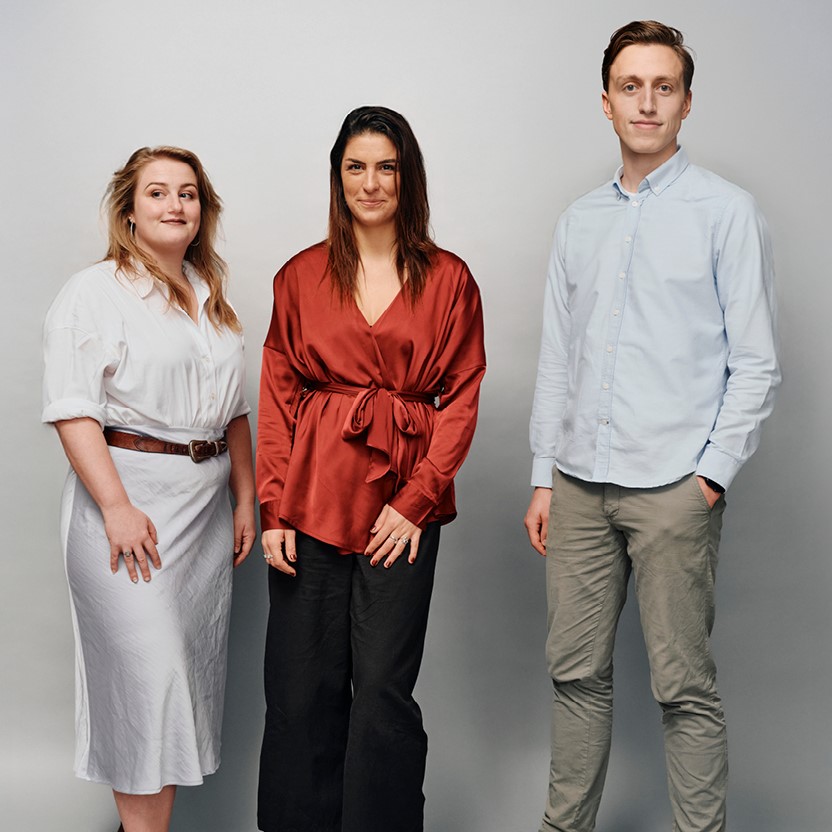
TNO's ambition for 2030: 80% of Dutch working people to have a job that matches their skills
New technology is causing old professions to disappear and new ones to emerge. How do employees successfully navigate this period when their work is fundamentally changing and the qualifications they gained no longer suffice? The trick to this is for employees to start gaining the right skills and pursue lifelong development. TNO's goal for 2030 is for 80% of working people in the Netherlands to have a job that matches their skills.
That is why TNO is developing a national skills standard together with SBB, UWV, CBS and Ministry of Social Affairs and Employment: CompetentNL, which will make finding and offering suitable work easier. That is how we’re building a future-proof labour market together.
Training and practice blending together
Joost van Genabeek, senior scientist at TNO: 'Our labour market shows a growing mismatch. Jobs are changing rapidly, due to AI for example. This applies to healthcare, among others, where technology has to make up for the lack of employees. Training is struggling to keep up with the pace of these changes. So, employees must continue to learn while working.'
'As a result, we are seeing training and work blending together. A qualification is just one of many steps in the idea of lifelong learning, and continuous development throughout your career is becoming more crucial. That is why there is now a focus on skills: these show what you are good at now and what you still need to develop in your work, rather than focusing on what you learned before.'
Quality of work
Many parties in the Netherlands are working on solutions to staff shortages. What makes TNO's approach different here? Joost: 'Our starting point is not so much to match supply and demand in the labour market. We look much more at the quality of work based on the perfect skills match. Employees who can put their skills to good use at work are generally more productive and satisfied.' Ensuring we have suitable work therefore enhances the quality of that work and helps resolve labour shortages.

'Continuous development throughout your career is becoming more crucial.'
Focusing on soft skills too
Goedele Geuskens, senior researcher at TNO: 'To achieve suitable work for 80% of people in the Netherlands by 2030, I focus mainly on collaborations in regional ecosystems between the public and private sector. The aim is to accelerate skills development for current and future employees and ensure that innovations are integrated into the workplace sooner.'
'To this end, we are bringing together the worlds of work, learning, and innovation. But what’s more, the rapid changes in work require not only new technological skills, but also soft skills, for example, when companies launch a partnership with others This requires more skills in communication, collaboration, and joint innovation.'
Future-proof labour market calls for agility
Goedele: 'These changes call for agile practitioners, professionals, and companies, as well as the ability to learn new skills and create a working environment that fosters learning and innovation. Only then will we make great strides towards a future-proof labour market.'
Future-proofing is also in the interest of companies: offering your employees a stimulating job that allows them to develop builds their sense of loyalty to your company. Goedele: 'This is also important when it comes to your business’s productivity.'

'It’s important to focus not only on skills development, but also on adapting jobs so that they match the skills that people have.'
Development through CompetentNL
TNO is linking concrete actions to its ambition of suitable work for 80% of the Netherlands. Joost: 'We are developing CompetentNL, a national standard for skills. We are setting out and defining all skills required and relating them to professions and education.'
'This will allow employers, employees, and the education sector to quickly see what skills are needed for a particular job or career. They won’t get this kind of insight by looking at qualifications alone. Moreover, skills provide insight into the opportunities for switching to a job in another sector.'
Maximum skills matches
CompetentNL allows employers to match the skills they are looking for with the expertise available in the labour market. This provides maximum skills matches. Goedele: 'If you as an employer have an understanding of the skills in your company or region, you can also design suitable jobs for them better. Because if we want 80% of people to have a suitable job by 2030, we need to focus not only on skills development, but also on adapting jobs so that they match people’s skills.' From 2025, employers and other parties can use CompetentNL to ensure good skills matches.
Increasing labour supply
Goedele and Joost outline another advantage of CompetentNL: 'Those better matches give you access to a type of employee you wouldn’t have thought of before. This delivers a huge increase in labour supply for employers.'
Another goal on the road to 2030 is the development of a national skills passport for employees. Joost: 'The idea is that employees can use the skills passport to prove what skills they actually have.'
TNO is working with partners including the Cooperation Organisation for Vocational Education, Training, and the Labour Market (Samenwerkingsorganisatie Beroepsonderwijs Bedrijfsleven, SBB) to develop CompetentNL. Janneke Voltman is the skills programme manager at SBB: 'Our input is making sure the qualification structure of higher vocational education (MBO) is aligned with the skills framework used for CompetentNL. This is essential for ensuring the quality of CompetentNL given that half of the Dutch workforce have an MBO qualification.'
Developing and applying the standard
Janneke: 'We are making common agreements on the skills framework, or rather the knowledge graph, in our programme. We are helping to develop CompetentNL, as well as applying what we agree to our own data. In doing so, we are completing the circle. The Dutch Employee Insurance Agency (UWV) is doing the same for occupations. This is how we are connecting demand in the labour market to the supply of courses where you can develop the skills required.'The result: more people in the right place on the labour market and a lower threshold for lifelong development.
Get inspired
Skills




